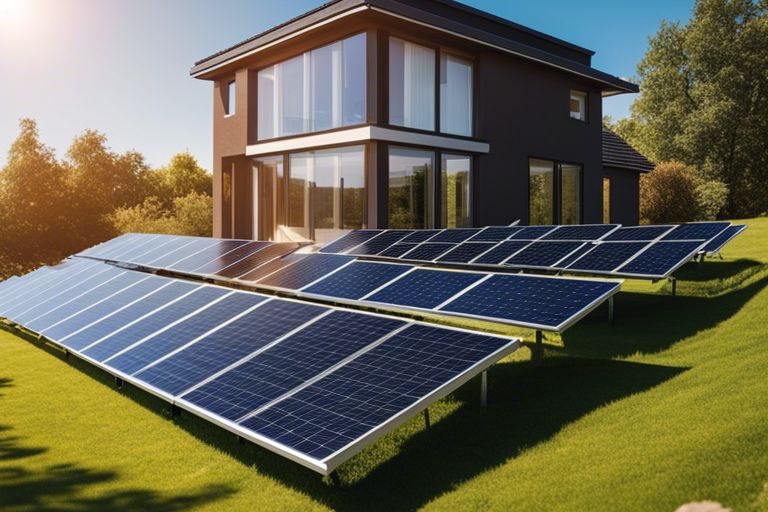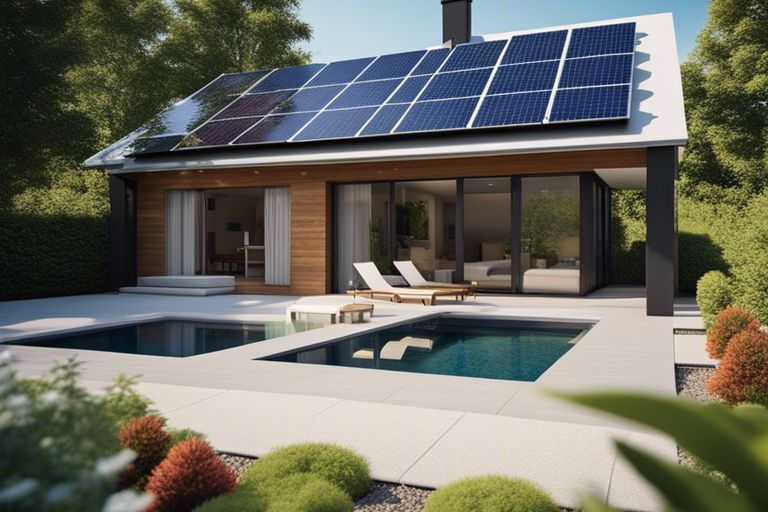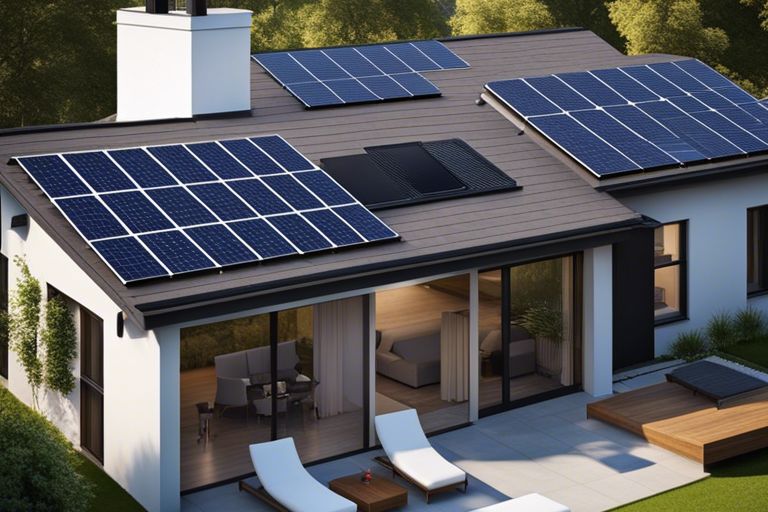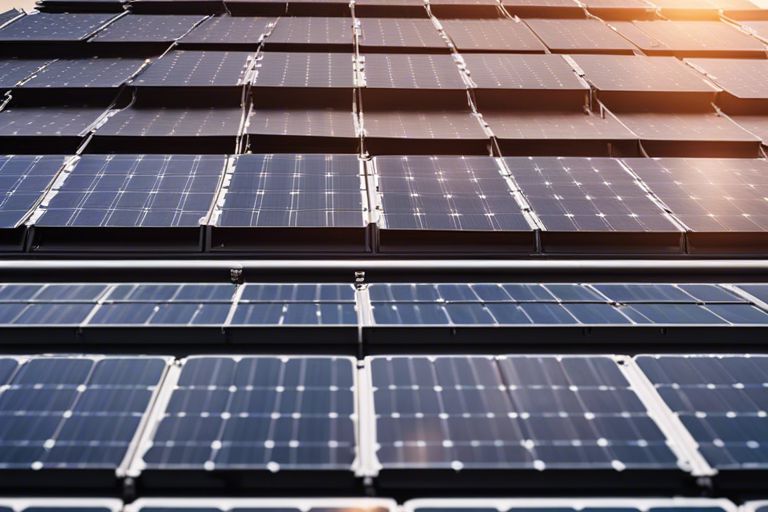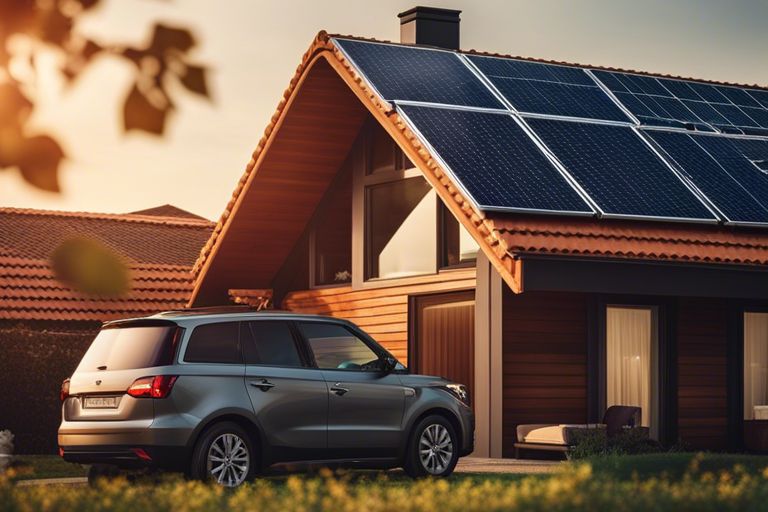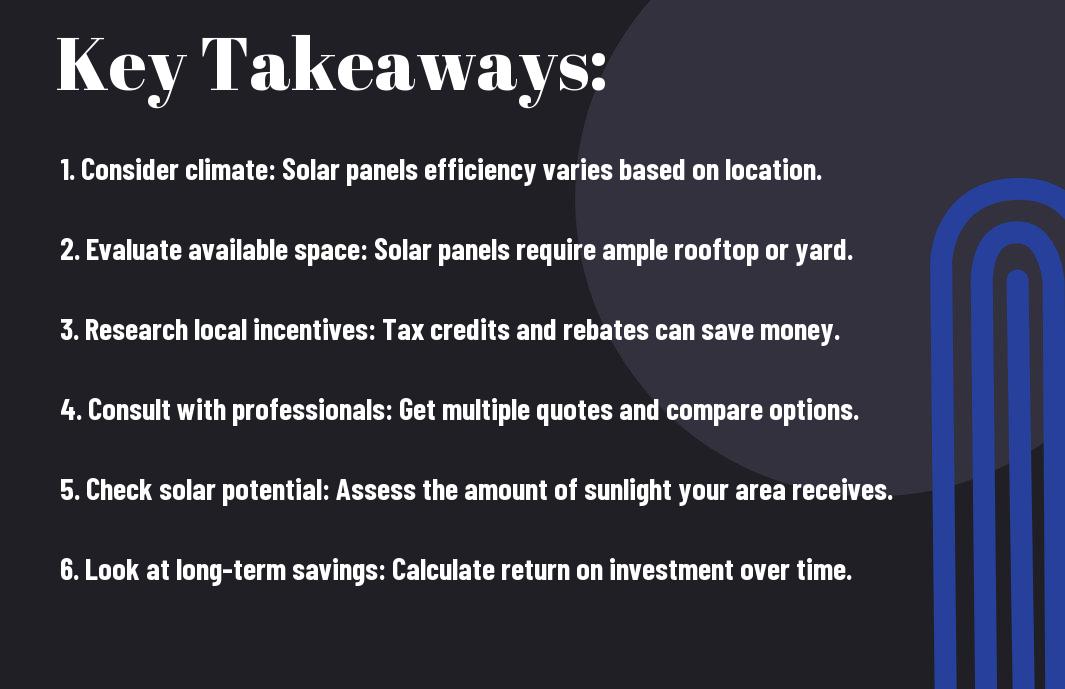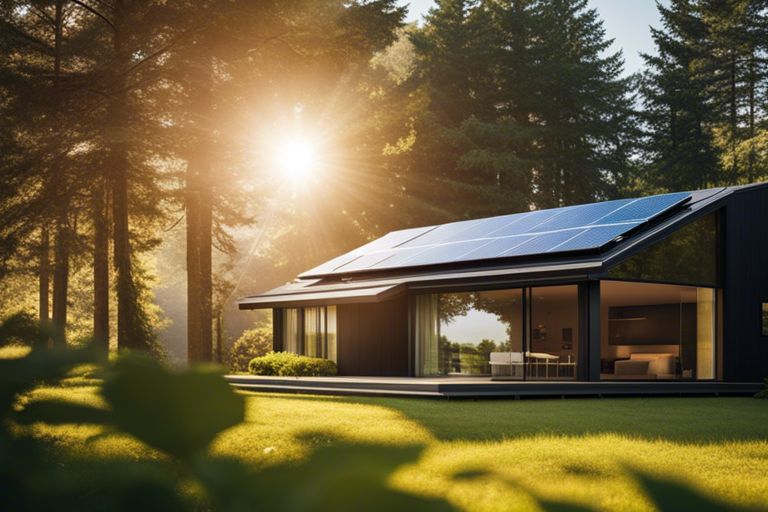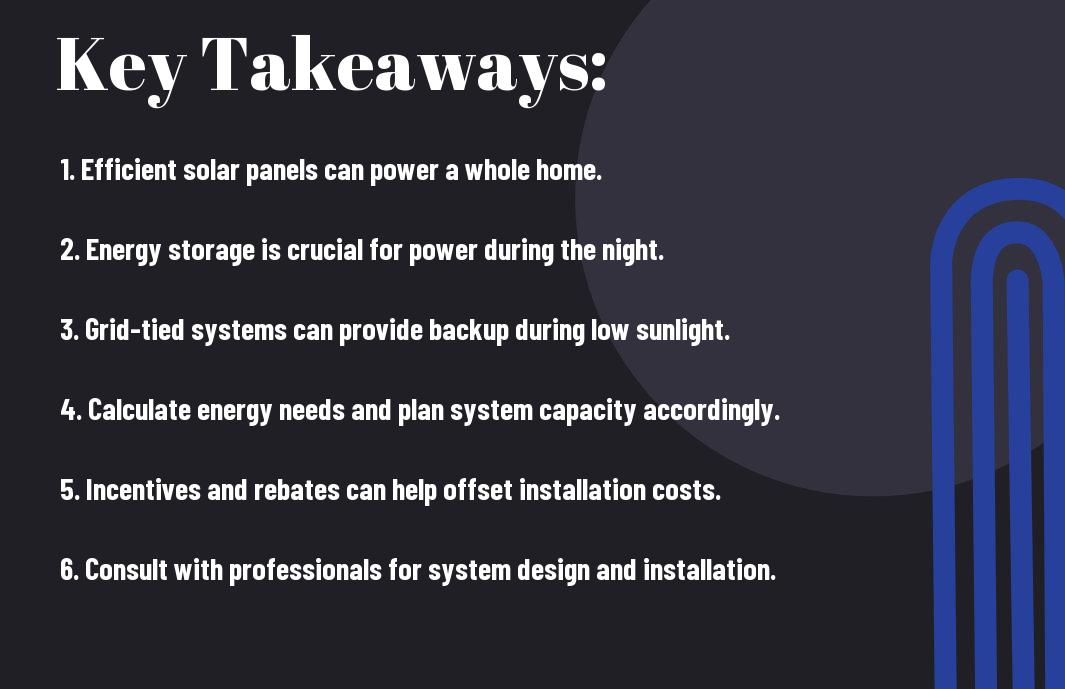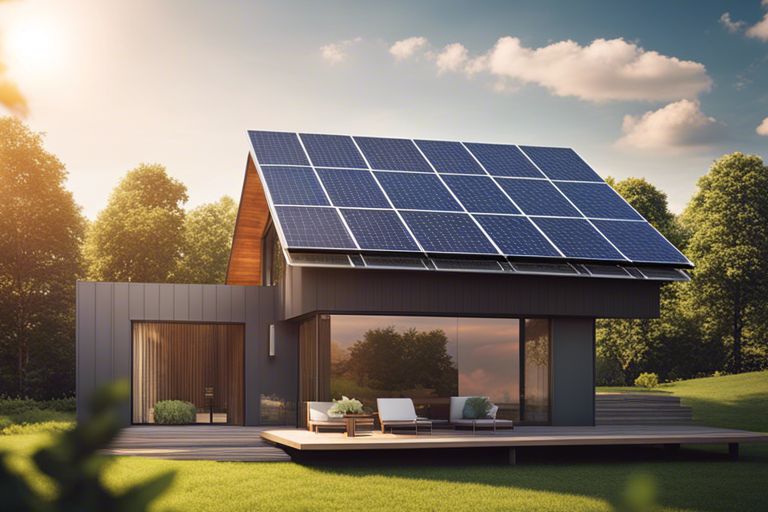Powering your home with solar energy is an environmentally friendly and cost-effective choice. To determine how much solar power you need for your home, factors such as your average energy consumption, roof size, sunlight exposure, and local weather patterns need to be considered. By calculating these elements, you can accurately size your solar panel system to meet your energy needs efficiently and sustainably.
Key Takeaways:
- Calculating power needs: Determine your average daily electricity usage to accurately size your solar system.
- Consider your location: The amount of sunlight your area receives will impact how much solar power you need.
- Efficiency and energy storage: Opt for energy-efficient appliances and consider adding a battery storage system for energy backup.
- Consult a professional: Work with a solar energy expert to assess your specific needs and design the optimal solar system for your home.
- Understanding incentives: Look into available rebates, tax credits, and other incentives that can help offset the cost of installing solar panels.
Assessing Your Energy Needs
When determining how much solar power you need to run your home, the first step is to assess your energy needs. This involves calculating your daily energy consumption and considering various factors that can affect your energy requirements.
Determining Your Daily Energy Consumption
To calculate your daily energy consumption, you can start by looking at your electricity bills to see how many kilowatt-hours (kWh) you are using on average per day. You can also use energy monitoring devices to track the energy usage of individual appliances in your home. By adding up the energy consumption of all your appliances and devices, you can get an estimate of your daily energy needs.
Factors Affecting Your Energy Requirements
- The size of your household
- The climate and weather conditions in your area
- The energy efficiency of your home and appliances
Energy requirements can vary based on the size of your household. A larger household will typically consume more energy than a smaller one. Climate and weather conditions also play a role, as extreme temperatures can lead to increased energy usage for heating or cooling. Additionally, the energy efficiency of your home and appliances can impact how much energy you need to power your household.
- Perceiving your energy needs accurately is crucial for determining the right solar power system size for your home.
Calculating Your Solar Energy Requirements
Peak Sun Hours and Solar Irradiance
Now, let’s explore into understanding how to calculate your solar energy requirements. Any successful solar power system design starts with knowing how much sunlight your location receives. The amount of sunlight your area gets is typically measured in peak sun hours, which represent how many hours of full sun equivalent your location receives on average per day.
Peak sun hours are crucial for determining the size of the solar energy system you need. The higher the peak sun hours in your location, the fewer solar panels you may need to generate the required amount of electricity to power your home.
Efficiency of Solar Panels
Your next consideration when calculating your solar energy requirements is the efficiency of solar panels. Solar panel efficiency refers to how well the panels can convert sunlight into usable electricity. Higher efficiency panels can generate more electricity in limited space and under suboptimal conditions.
Energy production is directly related to the efficiency of your solar panels. The more efficient the panels, the more electricity they can generate from the same amount of sunlight. When determining your solar energy requirements, consider the efficiency of the panels along with the peak sun hours in your area to calculate the number of panels needed to power your home efficiently.
Sizing Your Solar Panel System
Calculating the Required System Size
Many factors must be considered when sizing your solar panel system to power your home. To calculate the required system size, you need to first determine your average daily energy consumption in kilowatt-hours (kWh). This can be found on your utility bills or by using energy monitoring devices.
Once you have your daily energy consumption, you can calculate the size of the solar panel system needed by dividing your average daily energy consumption by the peak sun hours in your location. Peak sun hours represent the number of hours in a day when the sun is strong enough to provide solar power. By dividing your energy consumption by the peak sun hours, you can determine the minimum size of the solar panel system needed to meet your daily energy needs.
Considering System Losses and Inefficiencies
To ensure your solar panel system can efficiently power your home, you must consider system losses and inefficiencies. Solar panels are affected by factors such as shading, dust, temperature, and inverter inefficiencies, which can reduce the overall system performance.
This is why it is vital to factor in a buffer or additional capacity when sizing your solar panel system. By adding extra panels or a larger battery storage capacity, you can compensate for potential losses and ensure your system can reliably meet your energy needs, even in less than ideal conditions.
Roof Size and Orientation Considerations
Assessing Your Roof’s Suitability for Solar Panels
After determining the amount of solar power you need to supply your home, the next step is assessing whether your roof is suitable for solar panels. One important consideration is the size and slope of your roof. Ideally, you want a roof with enough space to accommodate the number of solar panels required to meet your energy needs. Additionally, a south-facing roof with minimal shading throughout the day is ideal for solar panel installation.
Optimal Roof Orientation for Solar Panels
Assessing the orientation of your roof is crucial when it comes to maximizing the efficiency of your solar panels. South-facing roofs receive the most sunlight throughout the day, making them the optimal choice for solar panel placement. However, east or west-facing roofs can also be suitable, with some adjustments in the placement of the panels to capture the most sunlight possible.
Size is also an important factor when considering the orientation of your roof for solar panels. A larger roof area facing the sun will allow you to install more solar panels, increasing the amount of energy you can generate. If your roof is limited in size or not ideally oriented, you may need to install fewer panels and supplement your solar power with alternative energy sources.
Local Building Codes and Regulations
Compliance with Local Building Codes
All solar panel installations must comply with your local building codes and regulations. These codes ensure that your solar system is installed safely and correctly. Before you begin your solar project, check with your local authorities or a professional solar installer to ensure that you are following all the necessary guidelines.
Obtaining Necessary Permits and Approvals
Local building permits are typically required for installing a solar panel system on your property. These permits are necessary to ensure that your installation meets safety and quality standards. You may also need approval from your homeowner’s association or neighborhood board before proceeding with your solar installation. Be sure to research and obtain all the necessary permits and approvals before starting your solar project.
Necessary permits and approvals may include electrical permits, structural permits, and zoning permits. These permits not only ensure that your solar system is installed correctly but also protect you in case of any issues or accidents in the future. Make sure to have all the required paperwork in place before installing your solar panels to avoid any legal or safety issues down the line.
Budgeting and Financing Options
Estimating the Cost of a Solar Panel System
To calculate the cost of a solar panel system for your home, you need to take into account the size of your home, the amount of sunlight it receives, and your average monthly energy consumption. Typically, the cost of solar panels ranges from $10,000 to $30,000 for a residential system. Keep in mind that this cost can vary based on the quality of the panels, installation fees, and any additional equipment needed.
Exploring Financing Options and Incentives
Exploring financing options and incentives can help make solar power more affordable for you. Options such as solar loans, leasing, and power purchase agreements (PPAs) can provide you with the opportunity to install solar panels with little to no upfront cost. Additionally, many states offer incentives such as rebates, tax credits, and performance-based incentives to encourage homeowners to switch to solar energy.
Financing your solar panel system through a loan or lease can help you start saving on your energy bills from day one without a large initial investment. Look into federal, state, and local incentives to see if you qualify for any programs that can further reduce the cost of going solar.
Conclusion
Following this guide on “How much solar do I need to power my home,” you now have a better understanding of the factors that determine the number of solar panels you need for your household. By considering your energy consumption, location, roof orientation, and efficiency of the panels, you can calculate the right amount of solar power to meet your needs.
If you are still unsure about the specifics, you can refer to this article on Wondering How Many Solar Panels You Need? Here’s a … for further guidance and resources to help you make an informed decision about solar energy for your home.
FAQ
Q: How do I determine how much solar power I need to power my home?
A: To determine how much solar power you need to power your home, you first need to calculate your average daily energy consumption in kilowatt-hours (kWh). This can be done by looking at your utility bills or using an online energy calculator. Once you have this number, you can use it to size your solar panel system accordingly.
Q: What factors should I consider when determining the size of my solar power system?
A: When determining the size of your solar power system, you should consider factors such as your average daily energy consumption, the direction and tilt of your roof, the amount of sunlight your location receives, any shading that may affect solar panel efficiency, and your budget. All these factors will help you determine the optimal size of your solar power system.
Q: Do I need battery storage with my solar power system?
A: Whether or not you need battery storage with your solar power system depends on your energy usage patterns and your goals. If you want to have backup power during outages or reduce your reliance on the grid, then adding battery storage may be beneficial. However, if you are connected to the grid and receive net metering credits for excess solar generation, you may not need battery storage. It’s best to consult with a solar energy professional to determine if battery storage is right for you.

